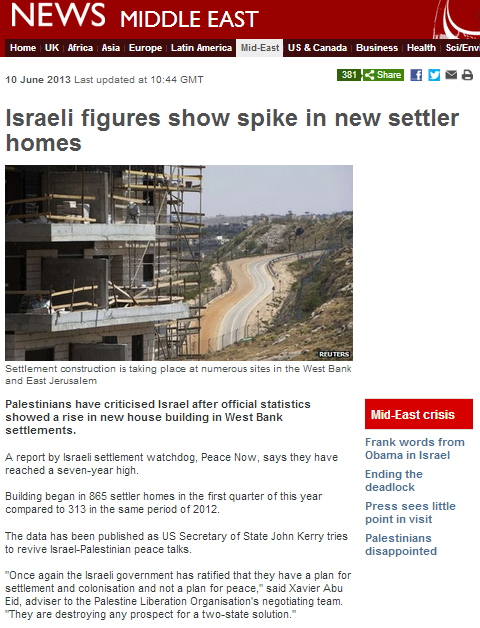Earlier this week we noted that the BBC’s coverage of the new Israeli NGO transparency law did not provide audiences with the range of accurate and impartial information needed for proper understanding of the issue. Among the issues arising was the report’s lack of any mention of similar legislation in other countries. At the Tablet, Professor Eugene Kontorovich discusses that topic.
“A major talking point of the law’s critics is that it has “no democratic parallel,” and that it puts Israel in the category of non-democratic regimes like Russia, and even sets it on the road to fascism. But if these claims are true, there is little hope for democracy in the U.S., which has had similar rules for decades, and imposed new ones a few years ago without a peep of international objection.”
We have often remarked here on the BBC’s absurd tendency to promote the Palestinian-Israeli conflict as the Middle East conflict (it even has a sparse webpage with that title composed of material exclusively from the last Gaza conflict) and the concurrent practice of labelling reports about that particular conflict “Mid-East crisis” or “Middle East crisis“. The Times of Israel has an interesting interview with Shadi Hamid of Brookings which relates to that issue.
“In conversation with The Times of Israel, the expert explains that he believes that even if the Israeli-Palestinian conflict were somehow miraculously resolved tomorrow with a two-state solution, the Middle East would still be “a bloody dangerous place.”
“It feels like Israel-Palestine has almost become an afterthought for how we talk about the Middle East nowadays,” says Hamid. “It isn’t the central conflict in the region. Many of us thought it was, particularly in the pre-Arab Spring period.”
“The Israeli-Palestinian conflict is not the key to resolving the ongoing problems, or making peace, in the Middle East,” he concludes.”
The UK-based Campaign Against Antisemitism had produced a guide titled “Recognising Antisemitism” which some BBC journalists and other employees might find helpful.
Like this:
Like Loading...

Weekend long read
Earlier this week we noted that the BBC’s coverage of the new Israeli NGO transparency law did not provide audiences with the range of accurate and impartial information needed for proper understanding of the issue. Among the issues arising was the report’s lack of any mention of similar legislation in other countries. At the Tablet, Professor Eugene Kontorovich discusses that topic.
“A major talking point of the law’s critics is that it has “no democratic parallel,” and that it puts Israel in the category of non-democratic regimes like Russia, and even sets it on the road to fascism. But if these claims are true, there is little hope for democracy in the U.S., which has had similar rules for decades, and imposed new ones a few years ago without a peep of international objection.”
We have often remarked here on the BBC’s absurd tendency to promote the Palestinian-Israeli conflict as the Middle East conflict (it even has a sparse webpage with that title composed of material exclusively from the last Gaza conflict) and the concurrent practice of labelling reports about that particular conflict “Mid-East crisis” or “Middle East crisis“. The Times of Israel has an interesting interview with Shadi Hamid of Brookings which relates to that issue.
“In conversation with The Times of Israel, the expert explains that he believes that even if the Israeli-Palestinian conflict were somehow miraculously resolved tomorrow with a two-state solution, the Middle East would still be “a bloody dangerous place.”
“It feels like Israel-Palestine has almost become an afterthought for how we talk about the Middle East nowadays,” says Hamid. “It isn’t the central conflict in the region. Many of us thought it was, particularly in the pre-Arab Spring period.”
“The Israeli-Palestinian conflict is not the key to resolving the ongoing problems, or making peace, in the Middle East,” he concludes.”
The UK-based Campaign Against Antisemitism had produced a guide titled “Recognising Antisemitism” which some BBC journalists and other employees might find helpful.
Like this:
BBC radio avoids the topic of Palestinian terrorist organisations
You may also like
BBC silence on scheduled Palestinian elections continues
BBC North West amends report with significant historical omission
Reviewing BBC coverage of the UN GA Jerusalem vote – part three